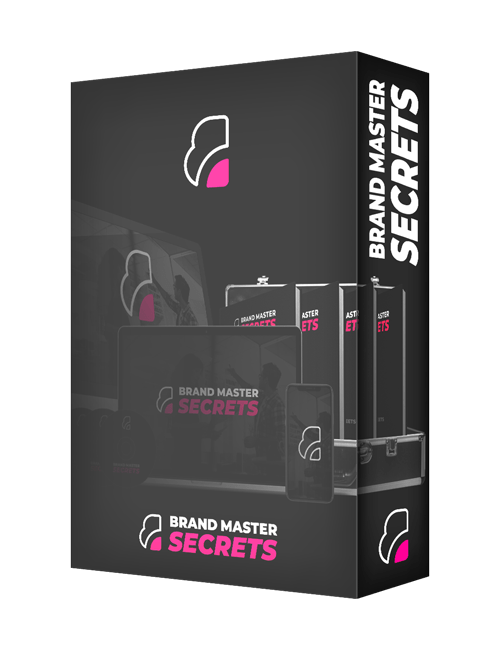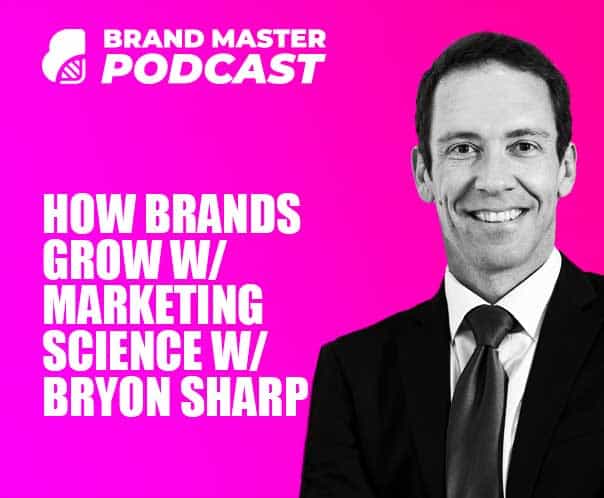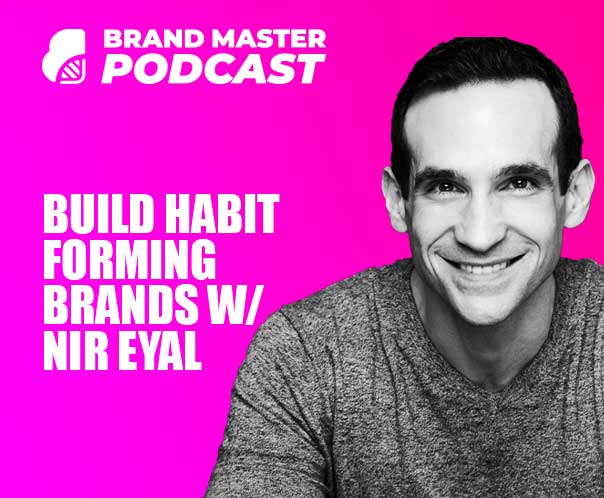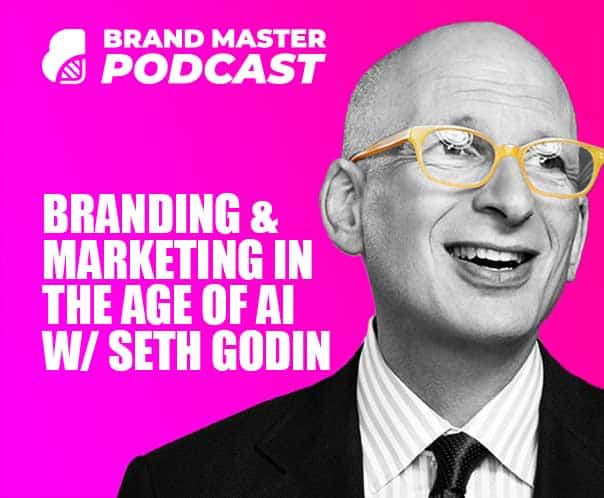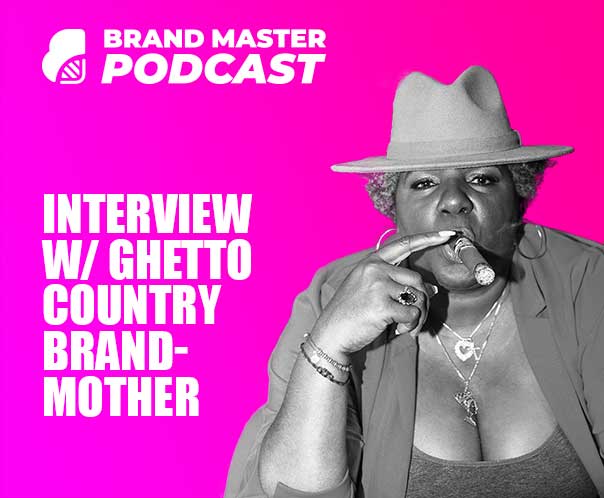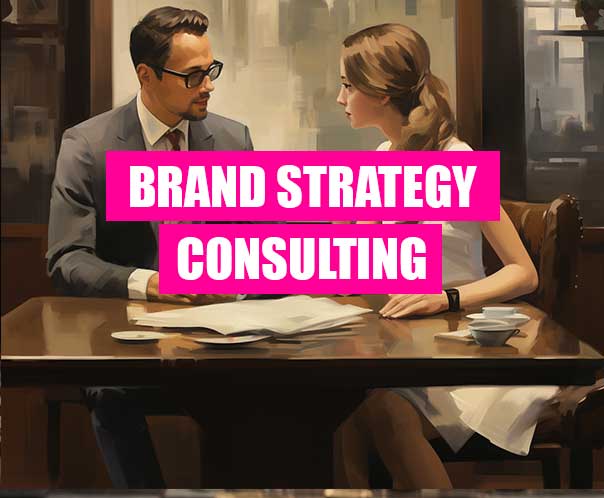Chris Do shares his insights about how to grow your creative agency.
Chris Do is an Emmy award winning designer, director, CEO, and chief strategist of Blind.
He’s the founder of the future, an online education platform with a mission of teaching 1 billion people, how to make a doing what they love.
So yeah, when it comes to creativity and the business of design Chris Do is a real life master.
Chris opened up about his early days in the agency world, scraping through contacts to find clients and his top three things that he would do if he had to go back and start at the bottom.
So if you’re a freelancer or an agency owner, you’re not going to want to miss the value bombs that Chris shares on this article.
Chris Do’s Journey
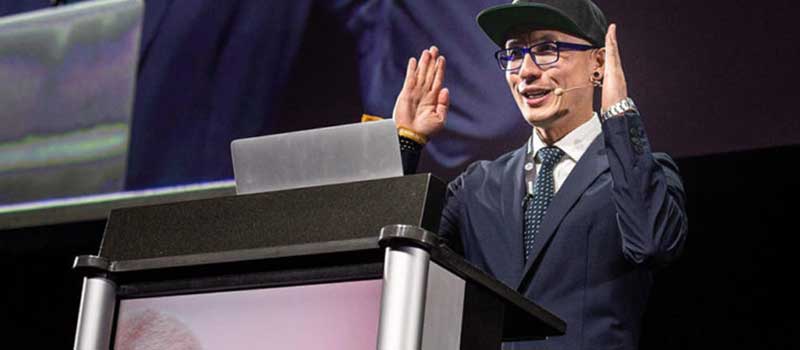
Stephen Houraghan
Chris is kind of from that moment, from the moment you kind of started to realize that you had a talent and you were coming out of art school,
To the point that you said to yourself. Okay, I think I’m going to do something on my own here.
I’m going to start my own business.
Can you tell us a little bit about the journey from there to the moment that you decided to start your own business?

Chris Do
I’ve been thinking about entrepreneurship for a very long time from a very young person, but I didn’t know it was called entrepreneurship.
It was just like, how do you make an extra buck?
Because I want to have financial freedom, even as a kid, I was like finding something to sell.
I’ve always desired to be able to be self-directed, but I didn’t know it was going to happen in the way that it happened.
I think it might be worthwhile to kind of spend a moment to share, kind of the time and place in which I’m operating in so that people have some context.
While I was still finishing up with school, I had an opportunity to work on an ad agency and spent three and a half months there.
They offered me a job and I’m still kind of like a full-time freelancer, they took really good care of me, they put me up in a corporate apartment, etc…
I got somewhere along the way and thought to myself that
this is not the right place for me. I’m a designer. I want to design things.

Ultimately I quit and finished school. I hadn’t prepared for any of the on-campus interviews,
I miss all of the orientation to senior portfolio thing. I missed every single part. So the only thing I can think of is to find another job.
So I go and work for Epitaph records. , mostly because one person, I knew from school was the creative director. His name is Fred Hidalgo.
I got that job a month and a half in. He gets fired and I’m like, I gotta get outta here. The only reason why I’m here was to work underneath him and to learn from him.
So I quit and I freelance.
So now I’m starting to enter the real job market and I’m starting to figure out I need to become some kind of entity because I’ve tried, corporate America in advertising,
I’ve tried the punk rock music scene, and neither of those two things worked for me for different reasons.
And so I feel like now the only way forward is to figure out how to start my own company.
I’m plotting in my mind when, at what point will I know that I’m ready, coincidentally. And this is a matter of a few months here.

Like three months after graduating from school. My uncle calls me up, he says, I know since a kid you’ve always wanted to create your own company.
I know you just finished school. Do you want to start a business? Because I have a business partner who wants to invest in a design company. It’s like, things are just falling into my lap.
So he calls me up and I’m like, yeah. So he says, put together a business plan. Didn’t know what one was, meet us at the Western bonded venture in downtown Los Angeles.
This is in 1995 and I meet with him and his business partner. He’s a real estate developer. He builds hotels. So this is not just like some little thing.
I remember staying up for nights prior to presenting this business plan with three five-year projections, I called up an investment banker friend. I guess my friend’s father, who was in that space, guided me through the process. I sat down and met with him. He does what most business people do.
He flips through it just to make sure you’ve done something. He puts it away and he goes, let’s do business.
He reaches in his coat pocket. He pulls out a checkbook on the spot while we’re still having dinner.
He wrote me a check for $10,000. Write me a check right on the spot. I think it was $10,000. I might be messing this part up and he signed it and he said tears out and he gives it to me.
He’s like, this is good faith.
We don’t even have a deal. Stephen, I didn’t know what I was getting into. This is the first time, literally the first time I’ve met this person and they’re already writing me a check and I’m feeling like I have a rabbit’s foot stuck up on butter or something. Cause things just seem.
Steep Learning Curve

Stephen Houraghan
I was going to ask a question, later on, was there ever part of the steep learning curve where you felt out of your depth, but I think it’s, it’s better to bring that question forward now.
Because obviously, you must have been really stressed. You must have been thinking that I can’t do this.
What were you going through when you were preparing for all of this?

Chris Do
I think people who are really successful are usually one of two things.
One is they’re really talented and they know what they’re doing.
And two they’re just dumb enough not to think they can fail.
I fit into the latter of the two categories, so I’m aware, but I’m not so aware. I have belief in. It doesn’t just happen for everybody at school, you get some, some person to cut you a check. And now I think about it. I think it was $5,000.
It was a lot of money back then for me, I was like, holy cow, who does this? So I’m not afraid of starting a business.
I think and falsely so that talents will take me there. I mean, so far talents have opened all kinds of doors for me. So why would I believe otherwise? Right. Something just pings me.
I’m just thinking, look, I’m not even out of school. I got a job in advertising. I finished school. I don’t prepare for anything. I got another job in the entertainment space.
I’m freelancing around town. And before I know a
business opportunity presents itself. So I’m not so worried.

I have this money and that’s enough. I basically put in my notice, I finished up my booking and then I started this company and I’m in business for myself.
I go to the bank, I do a DBA doing business as a file, like a, the city tax and license and all that kind of stuff. I’m in business, except for one huge problem.
I have zero clients and don’t know how to get clients. I don’t know how to do project estimating. I don’t know how to do the conference call to procure new work. All I know is how to design.
So there, there you are, you’ve got a $10,000 check. You, you’ve just opened up , you’re in business.
Where do you go from there?
Where do you know where to spend your money?
Where do you know where to invest your time?
How do you go out and get that first client?
Because you don’t know any of this, how did you figure all that out?
Yeah. So the reason why I gave that context for you is that all of my first clients came from people I just recently worked with.
So when you had the ad agency sent me work. The people I just graduated with, of them, got jobs eventually and found ways to bring back work to me.
The music label company, some of the people who work there hired me to do some independent contracting freelance work and when I was freelancing around town, they still called me and now it was under my terms.

So this was a very different shift from being a freelancer who’s trading my time for money to being an independent contractor.
I was just working remotely and of course, I’m an enterprising young person at that point.
So as soon as I get work, I’m calling up friends. I need help because I’m getting more leads, more opportunities to work than I can physically do instantly.
Right. And here’s the tip I want to give to anybody listening to this
when you work somewhere, whether it’s full-time freelance, whatever it is that you’re doing as an independent contractor and make an impression on people so that they remember.
The unforgettable in that way. And that will be your number one source for leads.

Stephen Houraghan
I have found this through my own experience as well, but the more I talk with very successful people the more commonalities appear, one that comes to mind is Michael Janda, that he got the likes of, Google, Nintendo you know, big, big companies because.
He’s one of the nicest guys you’ll ever meet and he lives by the philosophy, be nice to people, and that comes back to you.
Certainly as you go throughout your career, being nice to people, helping people being a giver and not a taker that all comes back and it’s the whole karma thing, but really starting off at the beginning and turn around.
PRO Brand Strategy BluePrint
Build Brands Like A Pro Brand Strategist
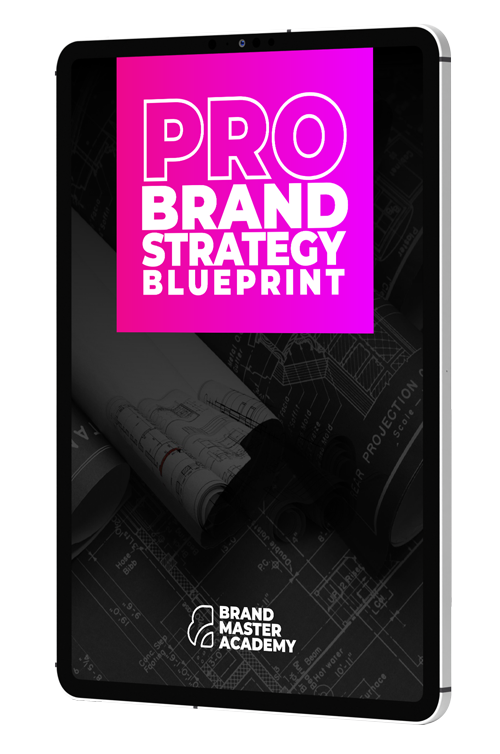
How To Leverage Your Network To Find New Clients

Stephen Houraghan
We have small business owners starting out new, most of them, they don’t have the added pressure that you had of having an investor and having to answer to those.
But they do have the pressures of having to put food on the table.
They might have kids at home and of course, that’s a pressure in and of itself when first-time entrepreneurs or freelancers go out into the markets and they have that moment.
Oh, no, I need to get clients fast.
How much weight would you put on turning around and tapping into the existing network that you already have as the starting point to get things rolling?

Chris Do
I think there are two ways to get business.
There is the slowly planting and building relationship.
So that when you need business businesses already coming to you or them, I decided today, I’m going to start doing business on our need to do business.
So again, I’m going to get back to school.
So when I was in school, I worked with a number of people sometimes for money. And most of the time it’s just to help each other out.
Sometimes I didn’t get paid. Actually, most of the time I did not get paid, but I was building a relationship with people. I was making an impression on people.
So when those same people went out, graduated, finished school and they went on to their career.
They remembered me and I know you talk a lot about branding.
So this is me brand building without even knowing what the word is. And so some of my earliest leads came from former bosses and coworkers.
They hired me to work on a commercial for K2 skis.
I got to work on a Nike job just two years out of school, a massive soccer project, because they’re like, you’re good with.

I think you now said you’re starting a design and production company. I got some work. Why don’t you do it?
Cause I just trust you. And people want to help people out that they like, right. And that they trust.
That’s what I was doing. I got to work on a Buick car commercial because somebody that I went to school with became a director and they got opportunities and they recommended me, to their friends and their editor.
So when they cut the commercials, who do you know, who could do this, and that’s how I got those opportunities.
So at this point, I have zero BizDev skills. I don’t know anything about marketing. I don’t really think about sales. And it’s just because of the impression I’ve been able to make prior to.
Explore Brand Strategy
Programs & Tools
How To Grow Your Team

Stephen Houraghan
Chris Do, of course you have these investors bind you, how did you first start to grow your team?
And what were the first kind of tasks that you let go of that you’re comfortable to let go of?

Chris Do
This will shock or surprise a few people in the. When I left these companies either in a freelance or full-time capacity, they knew that I was on my own. And so they just reached out to me and said,
Hey, Chris, I never got the opportunity to work with you. We need to develop some identities for these on-air brands.
I’m like, great. Here’s my rate. And as soon as I got the work, I called up my friends because I was already kind of thinking that I need to delegate this work.
So I’m not even a couple of months out.
Getting opportunities and just hiring my friends as fast as I could just calling up people like, how are you happy with the job that you’re at right now?

Because I’d love to work with you. I remember you from school. And so that’s who my initial team were
They’re all classmates and they all happen to be women by the way, but they would eventually either quit their job or, they were on like in between jobs.
So like, I’ll come in here. And so I would just feed them the work.
We had this kind of very egalitarian way of working where you know what you work this much, you should take this percentage of the job and I’ll take some of the management, the money, the leftover if you will and it just worked out really beautifully.
So I was delegating from what I was doing were these, people who are really good, but not as good at me at doing what I do.

So they would show me ideas. I would art direct it on. It’s like, this is a little bit off the brief and why don’t you try these ideas?
And they would work on that while I just continued to manage the client relationships. And when they were done with the day, they would put their files on this.
I would open them up. I’m like, okay, these look good. I’m going to curate which ones I want to share with the client.
I’ll make some tweaks here and there. And my friends were really cool when, when they saw the changes I made, they weren’t offended.
They were like, wow, I liked those improvements. I’d like the changes that you made and we learned and grew together.
How To Delegate So You Can Grow

Stephen Houraghan
How much of that do you think was natural?
That’s just that instinct to delegate immediately because I know from everybody who I talk to and from my own initial struggles with.
It was that feeling that I needed to do everything. And I know that that cripples so many designers, so many freelancers, so many creatives, they get to a point where their pipeline is full.
They have people who want to work with them and they cannot let go of that need to be in every area of their business.
How did you think it is a natural thing that you just immediately started to delegate?
And if you were crippled by that need how would you start to let go?

Chris Do
So if I tell you a little bit about my passenger it will seem very obvious and then we can talk about how one adopts that kind of mindset.
So when I was in junior high, there were these bulk discounters where you can buy candy at bulk prices. My uncle owned a liquor store and they had candy.
So I would say to my cousin, Hey, can I buy these wholesale from you? And he’s like, yeah, of course, you can.
So he made no money. I just put in. Like, here’s all I want. And they had the really good candy, not the kind of candy you can get at school. And so he would give me the box.
I would go to school and I’m a really shy person, so I don’t really want to sell the candy.

So I just hired his classmates. I’m like, you want to sell the candy? And then Derrick, yeah.
So I said, here’s what I’m giving you. I need this amount back. And then this is what you’re going to make. And this is what I’m going to keep. And it was working really well. And I didn’t want to get in trouble.
Cause I wasn’t sure if this is 100% legal at school, you know, and when kids would do it, my friends from junior high would eat the candy and throw the boxes and the wrapper on the floor.
So I paid another kid to pick it up because I don’t want to get in trouble. So everybody worked into it as a little ecosystem and it was, it was, yeah.
So like I said, I’m an entrepreneur, an enterprising young person, the problem here, and the lesson I learned was my supply chain. Very inconsistent. Because my cousin didn’t always go to work because he was my age.

So he’d only go to the liquor store every once in a while and put in the order.
So I had massive supply chain problems there.
I’m like, you know what?
This is not working. I have to figure out something else. And the profit margin, even back then for me, was not enough.
I need to sell something that has a huge profit margin. So I move into selling something else, which I know I’m not supposed to do.
I’ll jump forward to high school. I go and work for a guy who does silk screening. I made my senior year in high school and I was working for him as an inker.
I would trace over his drawings in a Rippetoe graph pen, cut Ruby lift, and do all the color separations.

He paid me at that time, $18 an hour, which I’m like, this is freaking great. I can make a living doing it. Except for, I realized something one day.
I’m working for him, as a freelancer.
I asked him, like, could I order shirts from you? How much is the cost? And he says, well, they’re five and 25 a shirt.
And I said, what are the other costs? He goes, that’s it, is there a minimum? He goes, yeah, like 20 shirts, something and this is great.
I’m working too hard to make this money. What I’m going to do is I’m going to go to school. I’m going to find clubs or groups of people who need t-shirts designed.
I would design them and then I’ll hire my former boss to print them.
I’ll collect the difference between the two.
So I just sold the shirts for $20 a shirt. I got charged five and a quarter for them, and that’s how I made money.
So you’re going to see that there’s a pattern of behavior and most of it is influenced by this one.

He’s like, you might like this book. He throws his book at me. And it’s the ventures of the great brain written by Tom Fitzgerald.
So this is a classic, it’s an old book and it’s these kids who grew up in Utah, like during the early, like what is it?
20th century, like early 19 hundreds here. And it’s a simple way of life. Like where a penny would get you a lot.
My brother gave me that book because he knew that I was going to feel my drive to build a business. And in these little kids.
It was the blueprint. This is how you make money.
Referral Strategy vs Marketing Strategy

Stephen Houraghan
Now, when it comes to how you grew, obviously there’s a lot of referrals and for some people it happens that way.
For some people that snowball keeps going, for other people they get referrals and then they don’t get that momentum and they don’t get that snowball.
So they hit that point of marketing and kind of going out there.
Did you ever have to go to the market to actually do active marketing, or did you ride that snowball?

Chris Do
The way to success. There are periods in the history of both companies where I’ve had to go out and drum up.
For sure. And so this is not just, well, once you get to the positive side of things, you can just sit back and relax and everything works out.
So there’s a period in time when the work does come in, you tap into the friends and family network and the friends of friends network. and eventually that’s going to drive.
Because if anyone hits pause or they have another option or they don’t have a creative thing for you to work on, eventually gonna run out of people to talk to.
I think it was about a year and a half into my business. I have four or five people working for me on a full-time freelance basis.

And I’m like, oh my God, we have no work. What am I going to do? And so I have to, I picked up the phone.
I literally looked in a directory and called up a bunch of sales.
These are people who represent directors and production companies for work.
I called every single one of them and I sent them. professional quote unquote and every single one of them just turned me down right after the other.
It’s like, I remember a woman, her name is Shabani and she’s like, Chris, really like your work. I just don’t know what to do with you.
And that was a very polite way of saying your work is not very commercially viable.
I don’t know how to get work for you. Although I recognize that you have some talent, right.
And so after making these calls, I’m like, I’m out of options. And so we sat around at the conference table, which was a door with salt just one, let everybody know that it was a conference room table.
I said, does anybody know anyone that might be able to give us work?
I remember this woman and she was our office manager and she was at that time dating one of my friends from school.

She said I know somebody and is not in the industry. She doesn’t know any of this stuff. I’m like, oh, Is this going to work?
She goes, yeah, I know someone, she worked at this agency. I can get us a meeting and I’m like, okay, awesome. She was the only one who said, I know somebody, let’s talk to them.
I go into that agency. I present my work to ’em, her name’s Karen, Karen Castello, tiny agency. I showed her the work.
She’s very polite. She looks at it and it’s like, oh, very nice. Okay. Thanks. And I close up the portfolio we leave and I’m thinking, what a waste of time?
This is the wrong person. She doesn’t like it.
Little did I know that Karen would soon be poached by another agency that was on the upswing and she was going to work on the Mitsubishi motors, CA , account.
So Karen, months later, calls me up and says, Chris, we got something to look at, do you, do you want to try this thing?
I’m like, sure. I wind up doing that job. It wasn’t the greatest of experiences.
She came back and said, you know what? We’d like to have you work on the entire campaign.
Wow. So yeah, I’ve had to go out and hustle. I’m not good at it. And I tell myself all kinds of stories.
And this is the lesson to learn here, which is, you never know what the other person is thinking.
So stay out of the results business, focus on the process. Did you call up enough prospects today? Did you do your best to prepare for the meeting? Utterly professional and polite.
You did your best after that you stay out of the results business because you never know what people are actually thinking or saying or doing long after you.
How To Scale Systems & Processes

Stephen Houraghan
When it comes to the progressive growth of your business.
At what point did you say to yourself, okay, you know we’re growing, we’ve got referral business coming in. We’ve got freelancers on the books, but I need systems in place and I need processes in place.
At what point did you turn to your business and start looking at this kind of machine that needs processes and stuff?

Chris Do
You start calling up clients today before you have the business cards printed. You don’t need to hire an accountant to set up all your books.
Although that one I might have you do first, because it sets up a pattern that is kind of sometimes hard to do.
So if you’re in a cruel or cash-based accounting system, it can totally mess up your system.
So there’s a handful of things, but don’t get overburdened with systems and protocols.
I think we’re trying to be too efficient before we actually even know what the heck we’re doing.
I learned to build file structures for my projects when a freelancer came in and he’s like, okay, I’ll finish the work.
I copied it to the server. I’m like, great, thanks so much. And then I look at is project folder system.
Like, this is great. Then I went in, copying that folder set. I removed all the assets, renamed it for what we need. And I said, okay, everybody here’s the new template. Yeah.
So that’s how that system was amended because a freelancer who had been freelancing longer at bigger companies brought that system to a bidding.
How To Scale Your Marketing

Stephen Houraghan
Along the way when, when it, when it came to kind of progressing what you did.
I speak a lot about branding and brand strategy and, for me, anyway, it just felt like this organic, natural progression, because I was doing things for clients.
And I start to ask these questions kind of questions, these, bigger questions. It was just like this thread that I kept pulling up and that seems to be the natural progression, certainly for, for that outside of the agency.
How did strategy kind of, come into your world and land on your map by just pulling that thread and asking those bigger questions.

Chris Do
No, not at all. I love that we have different stories about how we figured this stuff out, right? Yeah. So for over two decades, I made commercials and I worked for ad agencies.
So they figured out the bigger strategy, the marketing strategy, and they wrote the creative briefs and they would send that over to us.
And what they were looking for us to do was to translate a very loose script into a tangible thing. And so I thought this is great. And you know, we got to work with the biggest advertising agencies in the world.
Right. And work in multi-billion dollar brands. So I was like, oh, I don’t know how to do any of this stuff.
And I’m starting to hear this word, branding, branding. What is branding? I don’t know. It’s like, everybody’s talking about it.
So it wasn’t until I met my former business partner, Jose, who teaches me this framework on how to design and build better websites, that I started to see the connection between understanding the needs of a user, the strategic, like the global business objective.
My newfound curiosity with building brands made me, if making commercials was like a super viable business for us and it was plentiful and everything was going great, I probably would not have explored this at all, but I started to see the signs.
The sign was that agencies were acquiring production companies like ours to bring them in house so they can control costs and control.
So I have to become the agency at this point. I need to figure out another business model here.
If I don’t figure this out quickly, we’re going to be out of business. And so I approach it from that.
So I had a mentor who showed me what it was like to do one thing, and I was able to apply that thing to the next thing, which is then I have to start doing business development all over again.
The Road To Brand Success Is A Long Road

Stephen Houraghan
Building a brand is a long road building, getting a brand to any kind of success is a long road and it takes a lot of different disciplines and a lot of different skill sets.
How far down the road do you take clients? And at what point do you say to yourself?
I’m getting outside my area of expertise at what point do you let go of their hand and how do you do that?
They let go of their hand completely or do you have a network of partnerships where you need to go over here or you need to go over there.
How do you do that?
How do you stay in your lane and pass them off in the right way? At the same time?

Chris Do
The only question I think we all need to have is to recognize that we’re not good at all.
So when we’re doing client direct work and they’re helping us, they’re asking us to help them with a marketing campaign, building out a website to, to get customers, whatever it is, we understand what the objectives are.
We define that with them. We figure out what’s the best path to get this result that they want.
We’re facilitating meetings, doing strategic conversations and we’re mapping things out and then we go and do the creative production part, the writing, the designing, the building, and testing.
Once we’re done with that, we pretty much hand over the project to the client at that point and do all the QA stuff, quality assurance.
Then at that point, we kind of wash our hair.
So that’s the beginning and the end of the service that we provided to our client, they asked for something to be built and to, to be really transparent and honest about this, I would call in and check in with my clients.
How were we doing?
Do we need to service the site?
Do we need to do anything different?
And they would say things like this was the commercial real estate thing. All the buildings are leased. We have three more projects for you.
The client’s satisfaction with the work and their desire to give us more work as a sign that whatever they needed us to do, we’ve done and I’m ready to keep moving forward.
I’m not in that space where we’re asking them, did you sell 10,000T-shirts?
We’re not at the business management consultant level where we’re really trying to build a brand.
To me is the consumer touchpoints, the messaging, the look and feel, the usability, the user experience design.
Those are parts that we focused on.
Referrals or Partnerships

Stephen Houraghan
If a client were to come to you and say, look, the website’s great but we need to increase our traffic and my business partner has been talking about Facebook ads and Google ads, can you do that for us?
What would be your response?
if that’s not your area of expertise, but you want to continue to hold the client’s hand?
How would you do that in an effective way?
Keeping that relationship going, potentially earning more revenue by holding their hand.

Chris Do
What I would do is I would say there’s one of two things we can do here.
This falls outside of the things that I would feel good about saying to you that we can do so
I can refer a couple of people and you can vet them and you can figure it out, or I can manage the project, but I need you to know that I’ll be marking up those fees for me to manage it because I’m carrying some risk and it’s taking up time for me to do.
When you’re that clear with your clients though like we trust you, you hire whoever you give us the price, and this is what you’re going to learn in business. Most business minded clients only care about what the bottom line is or the top line.
Like tell me what it costs. I don’t really care how we got there.
If it’s within my budget, I just want you to do it. They didn’t care if I marked it up to three or five times what it costs me to do, it didn’t matter.
So I would say something like, give me a couple of days to do my homework. I owe you an answer and then from there we can figure it out.
So I’m going to make a bunch of calls.
I’m going to get educated really fast.
Like what do you need to know for you to do your job? Well, how does this go wrong? I’m talking to potential vendors that I’m going to work with subcontractors.
Then I’m going to have like this composite knowledge from talking to three different people. You guys send me your numbers, right?
I get the numbers and I’m like, okay, great.
I want to work with company B. They seem to be the best fit for us, the right fit, personality, service, quality, et cetera.
Then I go, well, how much risk are we taking on by running this? And we need this to make business sense for us.
Otherwise, I’m just going to pass it on. So generally speaking, I would just double the budget.
If You Had To Start Again

Stephen Houraghan
If you had to kind of go back.
Nobody knows who you are and you had to go out and start again from scratch.
What will be the first, maybe a few things that you would do, maybe 2, 3, 4 things that you would do to build a successful agency?

Chris Do
Okay. Can I assume that I know what kind of business I want to build? Yes. Okay. We’re not going to, I’m not going to build an, a, like an education come on and we’re going to build like a service studio.
So the first thing I’m gonna need to do is I’m gonna have to stand up a website really fast, and I’m going to just put some really thought-provoking copy in there to get people to stand up and notice, like, this is a little bit different because I don’t want to use a cookie cutter.
I would spend some more money, sketching out some ideas, and then hiring a really great copywriter to really make it sound unique in the market space.
I don’t want to say we’re a visual communications company working with innovative companies that don’t make any sense to anybody.
That’s generic, that’s boring, there’s no personality.
I want to start to craft the brand voice really quickly. I want to target a few people I want to work with.

I’d probably jump on LinkedIn and start following all their content.
Literally, follow them on every social platform that they have and start to comment on it so that there is some name and familiarity that I’m trying to build with them.
So that eventually when I reach out to them, they’re going to be like, yeah, I kind of recognize you.
I’d probably get a LinkedIn Instagram and I’ll start making some YouTube content as a form of content marketing. And what I want to do is put in the work to build authority.
And the way that you build authority is you have to articulate your thinking and doing a combination of a couple of those things about a month in.
I think I’m ready to do a warm cold outreach to them and say, I’m new in this field. I love what you do. I have some ideas and perhaps how you could execute on X, Y, and Z.
If this warrants a conversation I’d love to chat with you, you might get zero responses from them. I would say something different.
I would say like, what are you doing for lunch next week? I’d love to take you out and pick your brain.
So that way, you move away from asking them for work and asking them for advice.
Wanna Learn More About
Brand Strategy?
On-Demand Digital Program
Brand Master Secrets
Make the transition from hired-gun to highly valued brand strategist in less than 30 days. The systems, frameworks and tools inside this comprehensive program are all you need to level up.
